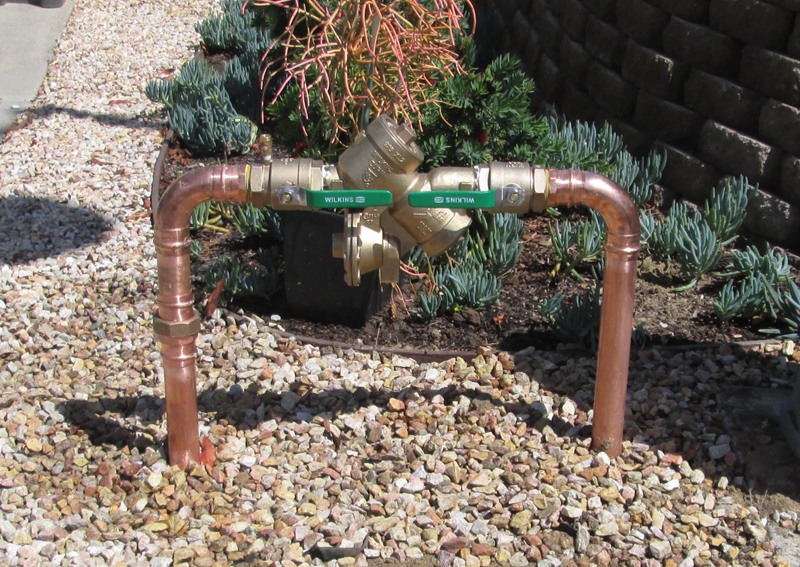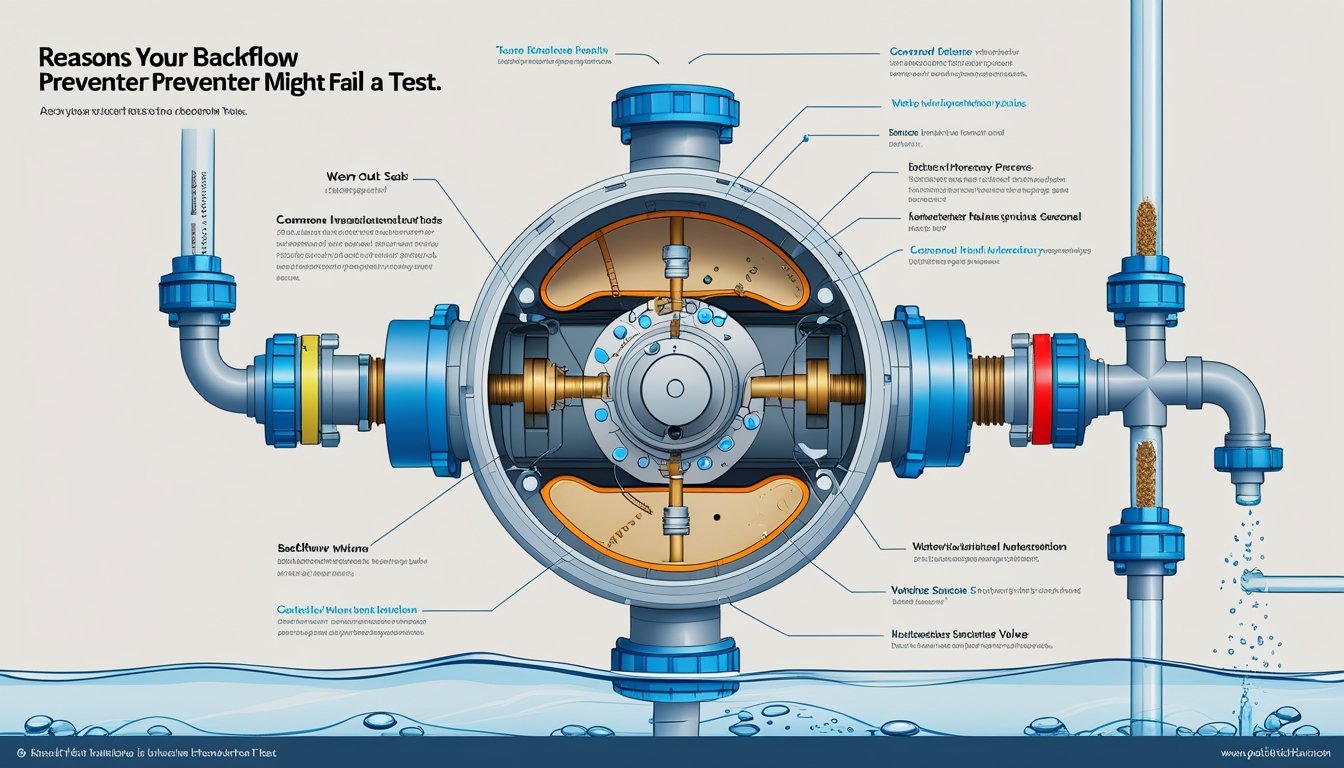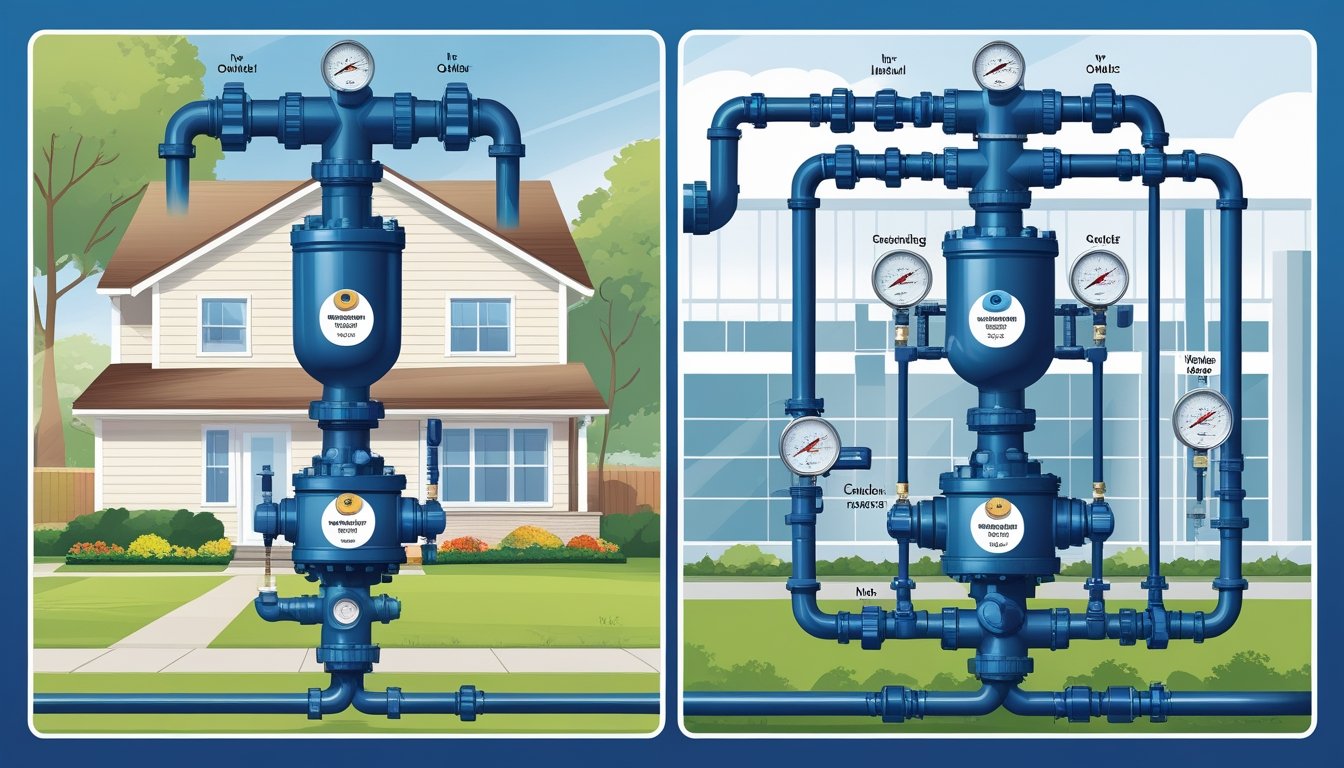The most common causes of smelly drains include clogged sewer lines, bacteria buildup, rotting debris in the pipes, dry P-traps, and calcium or limescale accumulation. These problems can develop gradually in your plumbing system, often without your noticing until the odor becomes impossible to ignore.
Many homeowners try temporary fixes for drain odors, but understanding the root cause is essential for a lasting solution. Whether it's hair and soap scum collecting in the U-bend under your sink or a more serious issue with your home's vent pipes, identifying the specific problem will help determine the right approach to freshen your drains.
Identifying the Sources of Odor in Drains
Finding the exact cause of drain odors requires understanding several common culprits. Smelly drains typically stem from specific issues that, once identified, can be effectively addressed.
The Role of P-Traps and Vent Pipes
P-traps are U-shaped pipes under sinks and fixtures that hold water, creating a seal that prevents sewer gases from entering your home. When these traps dry out, particularly in rarely used fixtures, sewer odors can escape into your bathroom or kitchen.
A dry P-trap is a common issue in guest bathrooms or seldom-used sinks. Simply running water for a minute can refill the trap and solve the problem.
Vent pipes also play a crucial role in your plumbing system. These pipes allow air into the drain system while directing sewer gases up and out through your roof. When vent pipes become blocked by debris, nests, or even ice in winter, pressure issues occur. These blockages can cause gurgling sounds in drains and release unpleasant sewage smells.
Mold and Mould Growth Factors
Damp, dark drains create perfect conditions for mold and mildew growth. These fungi thrive in the organic matter that accumulates in pipes and can produce musty, unpleasant odors. High-humidity bathrooms are particularly susceptible to mold growth, and poor ventilation compounds this problem by preventing moisture from properly escaping.
Biofilm, a slimy layer of bacteria, often develops inside drains and provides an ideal surface for mold to grow. This slime layer is particularly common in kitchen sinks, where food particles provide nutrients. Regular cleaning with appropriate solutions helps prevent these growths. Vinegar and baking soda mixtures can help break down biofilm before it leads to serious mold issues.
Impacts of Food Particles and Grease
Kitchen drains frequently suffer from food debris and grease accumulation. When food particles decompose in drains, they release strong, unpleasant odors reminiscent of rotting garbage. Grease is particularly problematic as it solidifies in pipes, trapping food particles and creating stubborn blockages. These buildups can cause slow drainage and increasingly foul smells.
Coffee grounds, pasta, rice, and fibrous vegetables are also common culprits that stick to pipe walls. Over time, these materials break down and produce sulfur-like smells. Using sink strainers helps catch food particles before they enter drains. We recommend avoiding pouring cooking oils down drains, as they're a primary cause of smelly blockages that require professional removal.
Common Plumbing Problems Leading to Smelly Drains
Smelly drains are often a sign of underlying plumbing issues that need attention. These problems can range from simple clogs to more serious sewer line damage.
Clogs and Blockages
When organic matter like food particles, hair, soap scum, and grease build up in your pipes, they create blockages that trap water and waste. This trapped material starts to decompose, releasing foul smells that travel up through your drain. Kitchen sinks are especially prone to this problem due to food waste and grease. Bathroom drains collect hair, skin cells, and soap residue that form stubborn clogs over time.
Signs of a clog causing odor include:
- Slow draining water
- Gurgling sounds from drains
- Persistent bad smell even after cleaning
Regular cleaning with hot water and baking soda can prevent buildup. For existing clogs, plungers or drain snakes can help, but severe blockages may require professional assistance.
Sewer Gas Leaks
Sewer gas odors in your home often indicate a serious plumbing problem. These gases typically contain hydrogen sulfide, which produces that distinctive "rotten egg" smell. Sewer gas enters homes through damaged pipes, dried-out P-traps, or cracked seals. P-traps should always contain water to block sewer gases. If rarely used fixtures dry out, these gases escape easily.
Common causes of sewer gas leaks include:
- Damaged wax seals around toilet bases
- Cracked pipes allowing gas to escape
- Improperly installed vents in the plumbing system
- Dried-out P-traps in seldom-used drains
Sewer gas can be hazardous to health in high concentrations, so if you detect persistent sewer smells, call a professional plumber immediately.
Issues with the Septic System
For homes with septic systems, drain odors might signal problems with your septic tank or drain field. When septic systems malfunction, they can't properly process waste, leading to backup and strong sewage smells. A properly functioning septic system shouldn't produce noticeable odors. If you smell sewage near drain fields or around your property, it may indicate that your tank is full or damaged.
Warning signs of septic system problems include:
- Unusually lush or green grass over the drain field
- Pooling water or soggy areas in your yard
- Strong sewage odors inside or outside your home
- Multiple drains backing up simultaneously
Schedule professional inspections and pumping every 3-5 years, depending on household size and usage patterns. Avoiding flushing non-biodegradable items also helps prevent system overload and related odor issues.
DIY Solutions for Deodorizing Drains
You can easily tackle smelly drains using simple household items. These methods are effective, affordable solutions to prevent odors from returning.
The Baking Soda and Vinegar Method
Baking soda and vinegar create a powerful cleaning reaction that breaks down gunk in drains. Pour one cup of baking soda directly into the drain, then follow with two cups of hot vinegar. The mixture will bubble and fizz, which helps dislodge buildup.
Let this solution work for about 15-30 minutes. During this time, the chemical reaction breaks down organic material, causing the smell. After waiting, flush the drain with hot water from the tap. This method works well for kitchen sinks, bathroom drains, and showers. For stubborn smells, repeat this process weekly until the odor disappears.
Hot Water Flushes
Regular hot water flushes can prevent drain odors from developing. Boiling water is especially effective at dissolving grease and soap scum that cause smells.
How to perform a hot water flush:
- Boil 3-4 cups of water
- Carefully pour the boiling water directly into the drain
- Repeat this process 2-3 times
In bathrooms, hot water helps break down hair products and soap residue. For kitchen sinks, do this weekly to prevent grease buildup. Be cautious with PVC pipes, as extremely hot water can damage them. If you have PVC plumbing, use hot tap water instead of boiling water.
Using Bleach Responsibly
Bleach can effectively kill bacteria causing drain odors, but must be used carefully. Always dilute bleach before using it in drains, and use bleach solutions only occasionally in well-ventilated areas. This method works well for bathroom drains where mildew and bacteria are common problems.
Safe bleach solution recipe:
- 1 part bleach
- 10 parts water
Pour this solution down the drain and let it sit for 10-15 minutes before flushing with cold water. Never mix bleach with other cleaning products, especially ammonia or vinegar, as this creates dangerous gases. For homes with septic systems, avoid bleach altogether, as it can disrupt helpful bacteria in your system.
When to Call a Professional Plumber
Persistent problems or severe odors often indicate deeper issues within your plumbing system that need professional diagnosis and repair.
Persistent Odor Issues
If you've tried multiple home remedies but the smell keeps returning, it's time to call a professional plumber. Recurring odors typically indicate a problem beyond simple clogs or buildup. These might include damaged pipes, improper venting, or issues with your home's sewer line.
A professional plumber has specialized tools to inspect deep within your plumbing system. They can use cameras to identify cracks, bellies (low spots where water collects), or collapsed sections in your pipes that you can't see.
Performing a Smoke Test
A smoke test is a specialized diagnostic procedure that only professional plumbers should perform. During this test, they introduce harmless smoke into your plumbing system to locate hidden leaks or improper connections. The plumber will block off appropriate sections of your drain system and then pump in artificial smoke. If there are any breaks or leaks in the pipes, smoke will escape through these openings. This helps identify where repairs are needed.
Smoke tests are effective for finding the source of persistent sewer gas smells that can't be identified through visual inspection. They can reveal problems in walls, under foundations, or in other difficult-to-access areas. This test is essential when dealing with mysterious odors that seem to come and go or appear in unusual locations throughout your home.
Get in touch to arrange a professional inspection of your drainage system.











